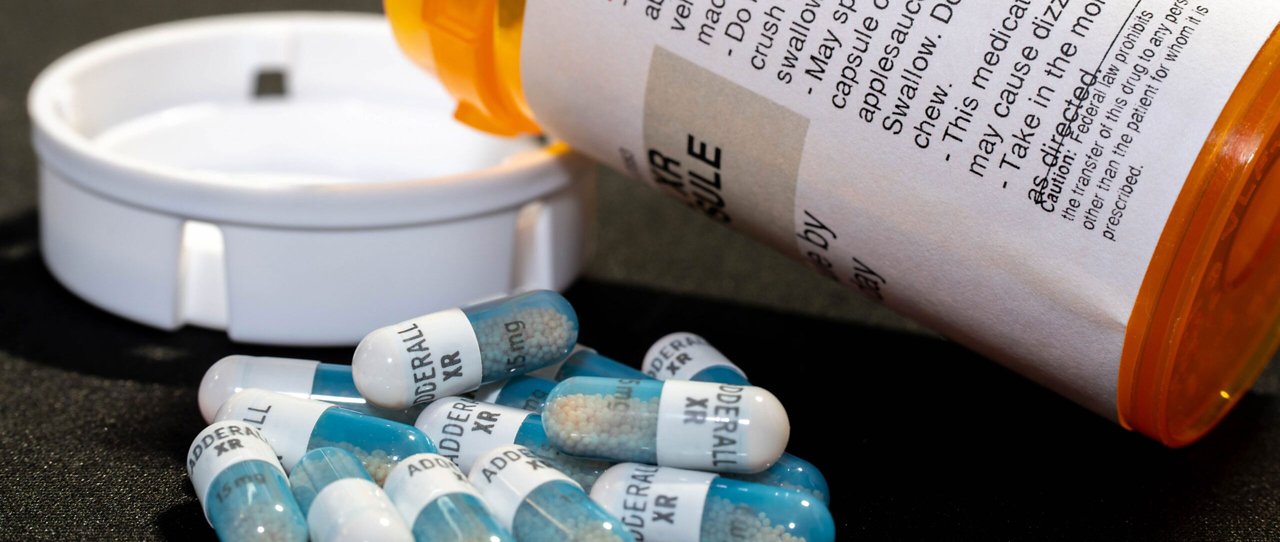ADHD medication shortage: 6 ways to cope

It seems like every other week there is a new shortage. Toilet paper (doesn’t that feel like ages ago?), baby formula, eggs, real estate, fill in the blank.
If you or someone you love has ADHD (attention deficit hyperactivity disorder), you may be dealing with the frustration of not being able to get medication during national shortages – caused by manufacturing delays and increased demand of Adderall and similar drugs, such as Concerta and Vyvanse.
So far, I’ve been fairly lucky. My ADHD child takes quick-release Ritalin, what I consider an “old school” medication. We’ve tried them all, literally all of them, and this is the one that seems to work best. For now. If you’re a parent of an ADHD kid, you get that.
We had one instance where his dosage was unavailable, but we had enough to get by until it was restocked a week or so later. Some people have not been as lucky. As someone with ADHD myself, who takes medication for it, I can tell you that it’s not a “nice to have” medication, it’s a “need to have to function” medication.
First off, how do stimulants like Ritalin and Adderall work?
The way I have explained this to my parents, who were skeptical about their grandson (now a middle schooler, but a kindergartner at the time) being on a controlled substance, is this: people with ADHD need a little extra help creating certain brain chemicals to help them better focus, behave, pay attention, and function in a world that isn’t really made for people with ADHD brains. Stimulants, like Ritalin and Adderall, help activate those brain chemicals.
You can read a more scientific explanation of stimulant medications for ADHD on WebMD.
Tell me more about the shortage and when it will end
It started with Adderall, one of the most prescribed meds for ADHD. According to the FDA, one of the manufacturers of the brand-name drug Adderall, Teva Pharmaceuticals, has experienced ongoing intermittent manufacturing delays.
Other manufacturers of Adderall or its generic versions continue to produce the drug, but there is not enough supply to meet the increased demand from patients during the pandemic. So, alternatives like Ritalin have been higher in demand and have experienced some outages as well.
Another reason: increased demand. You may have heard about ADHD on TikTok, or other social channels, where it has been a trending topic. Not to blame everything on the pandemic, but it definitely caused more stress and disruption for people with ADHD, who may have sought more medication (or medication for the first time) to cope with their symptoms. There was also an increase of people thinking, “Hey, I think I might have ADHD.”
I am not at all diminishing these people – ADHD diagnoses among adults are growing four times faster than are ADHD diagnoses among children in the United States: 26.4% increase among children compared to 123.3% among adults.
What to do in the meantime
If you or your loved one have not been able to get Adderall, Ritalin, or another ADHD medication during the shortage, you can try another stimulant medication like the ones listed below.
- Brand Name: Adderall
- Generic Version: Dextroamphetamine-amphetamine
- Brand Name: Focalin/Focalin Xr
- Generic Version: Dexmethylphenidate
- Brand Name: Dexedrine
- Generic Version: Dextroamphetamine
- Brand Name: Ritalin/Ritalin LA
- Generic Version: Methylphenidate
- Brand Name: Concerta
- Generic Version: Methylphenidate er
- Brand Name: Vyvanse
- Generic Version: Lisdexamfetamine
Here are 6 ways to cope with the ADHD medication shortage:
- Reach Out to your doctor: Your doctor knows you (or your child) best. They can help find alternatives and adjust medications.
- Talk to your pharmacist: Different pharmacies chains and independents have different companies (wholesalers) that supply them with medications. If one pharmacy does not have the medication try other chains or independent pharmacies. You can also ask the pharmacist to fill the brand name of the generic medication, if it is not available. Many plans have added brand-name drug coverage for these products while the shortage lasts.
- Connect with your insurance company: Your insurance company can let you know if a medication is covered and how much it will cost. They can also work with you with any prior authorization that may be required for your prescription. Also, your insurance plan may have accommodations for when there is a shortage such as adding more medications to coverage or having an approval process for medications not normally covered.
- Check into resources at your company or school: Your employer or school may be able to accommodate your needs. And if your child switches medication and takes a lunchtime dose, you’ll need to make sure the school nurses are aware of the change.
- Confide in your family and friends: Your family and friends love you. Be open and honest about your struggles and talk to them to find ways they can support you.
- Take care of yourself: Get enough sleep, eat well, exercise regularly, and avoid using alcohol and drugs to self-medicate. Find healthy ways to relax and cope with stress, such as meditation, yoga, music, hobbies, or therapy.
As with any kind of shortage, there is an end in sight. I only run out of toilet paper now when I forget to go to Costco. There are options for ADHD medications, and while it may not be the most perfect fit, it will be temporary.
Browse related articles

Blue Cross and Blue Shield of North Carolina does not discriminate on the basis of race, color, national origin, sex, age or disability in its health programs and activities. Learn more about our non-discrimination policy and no-cost services available to you.
Information in other languages: Español 中文 Tiếng Việt 한국어 Français العَرَبِيَّة Hmoob ру́сский Tagalog ગુજરાતી ភាសាខ្មែរ Deutsch हिन्दी ລາວ 日本語
© 2024 Blue Cross and Blue Shield of North Carolina. ®, SM Marks of the Blue Cross and Blue Shield Association, an association of independent Blue Cross and Blue Shield plans. All other marks and names are property of their respective owners. Blue Cross and Blue Shield of North Carolina is an independent licensee of the Blue Cross and Blue Shield Association.




